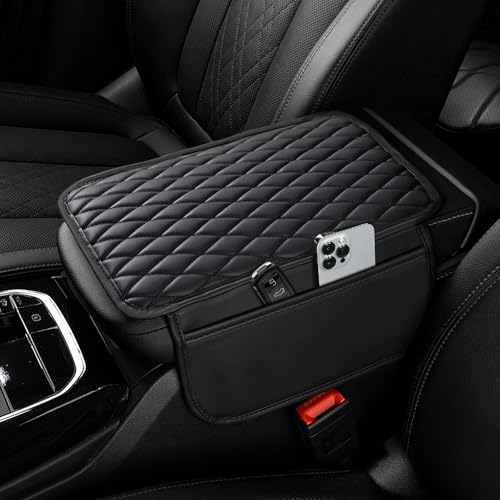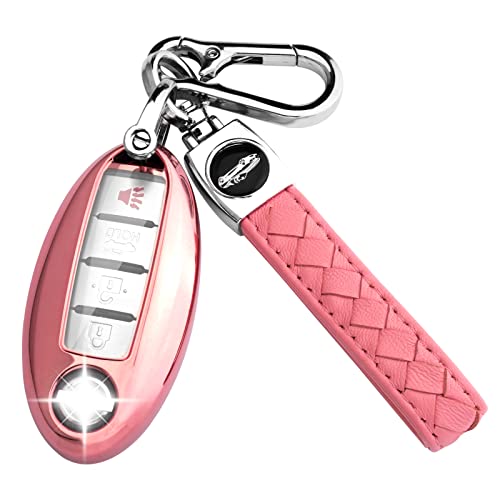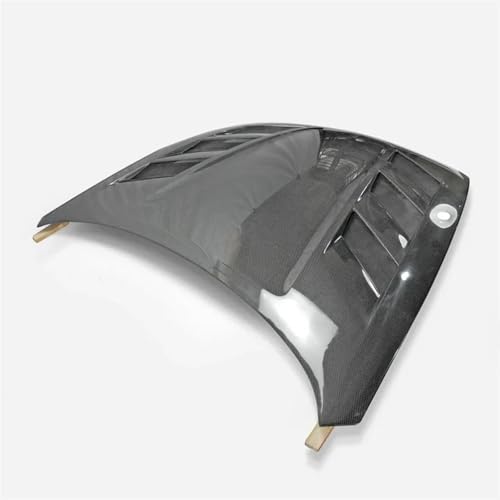When you see a Nissan on the road, it feels as American as any other car, but a nagging question often remains: where does it actually come from? You know it has a global presence with factories right here in the U.S., which makes the line between domestic and foreign feel blurry. This guide is here to cut through that confusion, providing a definitive, data-backed answer to the question, “Is Nissan a foreign car?”
Yes, Nissan is a foreign car. It is a Japanese multinational automobile manufacturer with its global headquarters located in Yokohama, Kanagawa, Japan. While many of its vehicles are built in the United States, the company’s origin, identity, and corporate control are fundamentally Japanese.
Leveraging a deep analysis of automotive history and manufacturing data, this post will unpack the complete story. We’ll explore Nissan’s rich Japanese heritage, pinpoint exactly where its most popular models are made today, and even show you how to identify a specific car’s country of origin yourself. This guide breaks down the critical insights you need to understand what “foreign car” truly means in today’s global economy.
Key Facts
- Japanese Origins: Nissan is unequivocally a Japanese company. Its corporate headquarters are located in Yokohama, Japan, and its history traces back to the Kwaishinsha Motor Car Works established in Tokyo in 1911.
- U.S. Manufacturing Presence: Despite its foreign origins, Nissan has a significant American manufacturing footprint. The company established its first U.S. factory in Smyrna, Tennessee, back in 1983, where it builds many popular models.
- Meaning of the Name: The name “Nissan” itself is deeply rooted in its Japanese heritage. According to company history, the name originated as an abbreviation for “Nihon Sangyo” (which translates to Japan Industries) and was used on the Tokyo Stock Exchange.
- Global Alliance, Not Ownership: Nissan is a key member of the Renault–Nissan–Mitsubishi Alliance, a strategic partnership with French and Japanese automakers. However, this alliance does not change Nissan’s core identity as a Japanese-headquartered company.
- VIN Identification: The country where a specific vehicle was assembled can be identified by its Vehicle Identification Number (VIN). The very first character of the VIN signifies the country of manufacture, providing a clear-cut answer for any individual car.
Is Nissan a Foreign Car? The Definitive Answer on Its Origin
Yes, Nissan is a foreign car. This is a straightforward fact based on the company’s origin, headquarters, and corporate identity. While the sight of a Nissan Altima or Rogue on American highways is incredibly common, the brand itself is not American. It is a Japanese multinational automobile manufacturer.

To be perfectly clear, here are the core facts that establish Nissan’s status as a foreign automaker, based on information from authoritative sources like Nissan USA and Wikipedia:
- Country of Origin: Nissan Motor Co., Ltd. was founded in Japan.
- Global Headquarters: The company’s main headquarters remain in Yokohama, Kanagawa, Japan, where major corporate decisions are made.
- Corporate Identity: Nissan is, and has always been, a Japanese corporation.
- Market Classification: From the perspective of the United States market, any company headquartered outside of the U.S. is considered foreign, placing Nissan firmly in this category.
But with factories in the U.S., what does ‘foreign’ really mean for a global brand like Nissan? Let’s break it down.
The History of Nissan: A Japanese Legacy Since 1911
Nissan’s history traces back to 1911 in Tokyo, officially becoming Nissan Motor Co., Ltd. in 1934, cementing its identity as a foundational Japanese automaker. Understanding this long and storied history is key to recognizing why, despite its global manufacturing, it remains fundamentally Japanese. The company’s journey didn’t happen overnight; it was a multi-decade evolution of engineering and business acumen.
Here is a simplified timeline of Nissan’s origins, drawing from the company’s official history:
- 1911 – The Beginning: The story starts with the Kwaishinsha Motor Car Works, established in Tokyo. This company would go on to produce a vehicle known as the DAT car.
- 1934 – The Birth of Nissan: The company was officially established as Nissan Motor Co., Ltd. This move solidified its place in the burgeoning Japanese automotive industry.
- The Name “Nissan”: The name itself is a piece of its history. Quick Fact: Did you know the name ‘Nissan’ is an abbreviation for ‘Nihon Sangyo’ (Japan Industries) used on the Tokyo Stock Exchange? This name connects the brand directly to its industrial roots in Japan.
- Post-War Expansion: Like many Japanese companies, Nissan grew significantly in the decades following World War II, eventually expanding its sales and manufacturing operations across the globe, starting with its Datsun brand.
This deep-rooted heritage is the bedrock of the Nissan brand. Every vehicle, regardless of where it is assembled, is a product of this century-long Japanese legacy.
Where Are Nissan Cars Made? A Look at Global and U.S. Manufacturing
While headquartered in Japan, Nissan has major manufacturing plants worldwide, including a significant presence in the U.S. at its Smyrna, Tennessee, factory, which opened in 1983. This is often the source of confusion. A car can be from a Japanese company but built in an American factory. This global manufacturing strategy is common among all major automakers today.
It might be surprising to learn just how many ‘foreign’ cars are built right here in North America. Nissan was one of the pioneers of this approach. The company established its first North American assembly plant not in the U.S., but in Cuernavaca, Mexico, way back in 1966. Its U.S. operations began later and have become a cornerstone of its success in the region.
Here’s a look at some of Nissan’s key North American manufacturing locations and the popular models they produce:
| Location | Year Established | Key Models Produced |
|---|---|---|
| Smyrna, Tennessee, USA | 1983 | Nissan Rogue, Nissan Murano, Nissan Altima |
| Canton, Mississippi, USA | 2003 | Nissan Titan, Nissan Frontier, Nissan Altima |
| Cuernavaca, Mexico | 1966 | Nissan Versa, Nissan Frontier |
| Aguascalientes, Mexico | 1982 | Nissan Sentra, Nissan Kicks, Nissan March |
This table clearly shows that many of the Nissan vehicles you see every day, like the Rogue and Altima, are assembled by American workers on American soil. However, they are still products of a Japanese-headquartered corporation.
How to Tell if a Specific Nissan Was Built in the US
Check the first character of the vehicle identification number (VIN); this number or letter signifies the car’s country of manufacture. This is the single most reliable way to know where any specific car, Nissan or otherwise, was assembled. It’s a universal system used by all automakers.
Here is the simple, step-by-step process to find a car’s origin:
- Locate the VIN: The VIN is a 17-digit code typically found on a small plate on the driver’s side of the dashboard (visible through the windshield) or on a sticker inside the driver’s side door jamb.
- Examine the First Character: The very first character of the VIN tells you the country of origin.
- Decode the Character:
1,4, or5indicates the vehicle was manufactured in the United States.2indicates Canada.3indicates Mexico.Jindicates Japan.
Pro Tip: Next time you’re looking at a car, take a moment to check the first digit of the VIN on the driver’s side door jamb or dashboard. It’s the car’s birth certificate!
Understanding the Renault–Nissan–Mitsubishi Alliance
Nissan is part of the Renault–Nissan–Mitsubishi Alliance, a strategic partnership with French and Japanese companies, but it remains a fundamentally Japanese company and is not owned by Renault. This is another crucial point of distinction that often causes confusion about who owns Nissan. The structure is an “alliance,” not a traditional merger or acquisition where one company buys another.
The partnership was formed in 1999 to leverage shared development costs, manufacturing platforms, and technology. It’s a collaboration that allows the member companies to compete more effectively in the global market.
Here are the key things to know about the alliance:
- Members: The alliance consists of Nissan (Japan), Mitsubishi Motors (Japan), and Renault (France).
- Nature of Partnership: It is a strategic alliance based on cross-shareholding and shared business goals. The companies remain distinct corporate entities with their own headquarters and national identities.
- Nissan’s Identity: Crucially, this partnership does not change the fact that Nissan is a Japanese company. Its corporate culture, headquarters, and brand identity are still rooted in Japan.
Alliances like this are common in the auto industry, but does it change how you see the brand? For most consumers, the brand’s country of origin—in Nissan’s case, Japan—remains the defining characteristic.

To keep your Nissan running smoothly, whether it was assembled in Japan, Mexico, or Tennessee, having the right accessories and maintenance tools is key. Investing in quality floor mats, cargo organizers, or basic diagnostic tools can enhance your ownership experience and help maintain your vehicle’s value.
FAQs About Nissan’s Origin and Manufacturing
Which country is the Nissan car from?
Nissan is from Japan. The company was founded there and its global headquarters are in Yokohama, Japan. While vehicles are manufactured in many countries, including the United States, the brand’s nationality and origin are Japanese.
Is Nissan an American or Japanese company?
Nissan is a Japanese company. While it has extensive manufacturing operations and a major corporate presence in America, its corporate headquarters, origin, and ultimate identity are Japanese. This is a common structure for many global automakers.
Is the Nissan Altima a foreign car?
Yes, the Nissan Altima is considered a foreign car because it is a product of a Japanese company. This is true even though many Altimas sold in the U.S. are assembled at Nissan’s manufacturing plant in Smyrna, Tennessee. The brand’s origin determines its “foreign” status, not the location of a specific factory.
What other brands does Nissan sell?
Nissan’s brand portfolio has evolved over the years. Today, the company sells vehicles globally under two primary brand names, with one historic brand
Last update on 2025-11-27 / Affiliate links / Images from Amazon Product Advertising API













